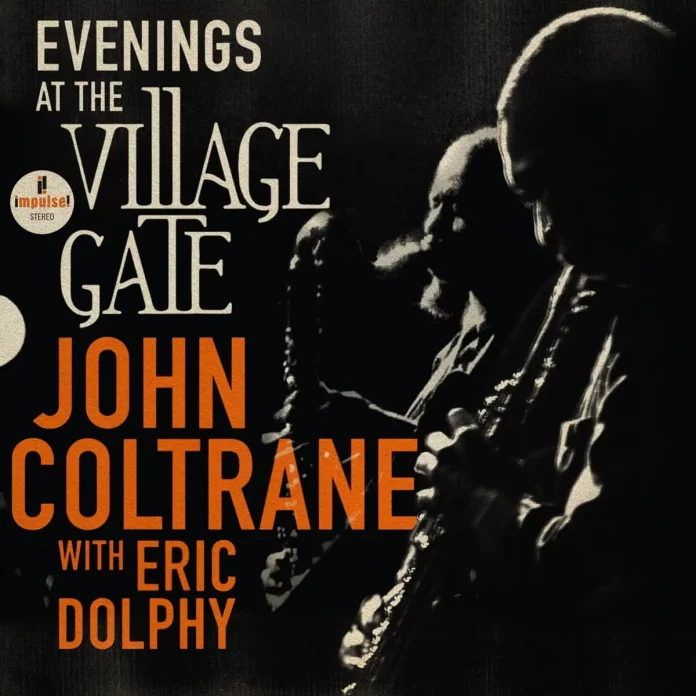And still they come. More than 56 years after his death, previously unknown or unissued recordings by Coltrane continue to appear every few months, legitimately or otherwise. This set dates from a residency by a group with a frequently fluctuating personnel, though it would soon consolidate. The recordings were discovered at The New York Public Library for the Performing Arts, having been made as part of a test of the Village Gate’s new sound system. Lost, then found, then lost again in the library’s archives, the tapes have now been unearthed again and issued as a download, a CD (which I am reviewing from) and an LP version on orange vinyl – how can you resist?
In 2018 I wrote a feature for JJ assessing the mild hysteria that surrounded the issue of Both Directions At Once: The Lost Album (also on Impulse). Strictly speaking that hadn’t been lost, just overlooked. I observed that Coltrane was one of the great masters of jazz, that the album contained some superb music, and confessed that I’d still have wanted these recordings if they’d featured Coltrane blowing his nose but, considered soberly, they really did not tell us anything new about what Trane was doing then – “then” being March 1963. I feel much the same way about this session, taped 17 months earlier. Perhaps it is of most interest for Dolphy’s contribution, especially when he plays bass clarinet, sounding very much his own man.
The recording is somewhat woolly and unbalanced, with the bass drum in your face – much of Jones’s complexity on the rest of the kit is lost. There is some nice playing from Tyner, but he sounds as if he might have been in the next room, and the basses are often swamped. The wind instruments mainly manage to cut through but even they tend to sound somewhat distant at times.
Notwithstanding these drawbacks this release is certainly worth considering, at least for students of the way jazz was evolving at that time, perhaps for anyone just beginning to explore Trane’s music, and certainly for Traneiacs like me. Although since his death a great many (mostly informal) recordings of music from this period have come to light, at the time his available studio albums, at least in the UK, gave little indication of his current direction, which might explain the shocked and negative responses to his concerts in Britain in November 1961.
The tunes featured were mostly staples of Trane’s repertoire at the time, though he also included When Lights Are Low which had been in the Miles Davis quintet’s book when he was a member and which here functions as a feature for Dolphy and Tyner.
My Favourite Things appears to start in media res, with Dolphy’s swooping flute solo in full flight, returning to the theme a couple of times, rondo-style, before ceding the spotlight to Coltrane’s fearsome soprano around seven minutes in. When Lights Are Low opens in more relaxed mode but Dolphy soon gets spiky, fades back in the mix and works in some variations on the theme. Impressions is exciting but doesn’t really match up to the version on the album of the same name, recorded at the Village Vanguard three months later. Greensleeves fades in, also seeming to have got going before the button was pressed, and there’s what sounds like an edit between Trane’s impassioned solo and Tyner’s rather graceful one. Dolphy’s bass clarinet follows, sounding rather spooky. Africa manages to capture some of the feel of the studio recording, with a fine passage for the two bassists.
The booklet included in the trifold digipak incorporates essays by Workman, recording engineer Rich Alderson, jazz writer Ashley Kahn and distinguished saxophonists Branford Marsalis and Lakecia Benjamin.
Discography
My Favourite Things; When Lights Are Low; Impressions; Greensleeves; Africa (80.05)
Dolphy (f, as, bcl); Coltrane (ss, ts); McCoy Tyner (p); Reggie Workman, Art Davis (b); Elvin Jones (d). NYC, August 1961.
Impulse 00602455514189
















